- Home
- JoAnn Ross
A Woman's Heart Page 2
A Woman's Heart Read online
Page 2
Even as her heart took a little dive at the depressing prospect of having to leave Castlelough, Nora couldn’t resist a smile at the mention of Sheila’s son, the man who once, in what seemed like another lifetime, had taught her to French-kiss, even as she’d worried for her immortal soul.
Sister Mary Augustine had taught all the girls in her class that letting a boy put his tongue in your mouth was one of the vilest of mortal sins.
“And don’t forget, girls, every sin you commit is another thorn in our Lord Jesus’ side.” Sister had glared like Moses standing atop the Mount at the group of tartan-clad adolescents. “French-kissing debases a girl. And makes the devil smile.”
Although Nora certainly hadn’t wanted to make Satan smile, three years after that memorable sex-education lecture, Devlin Monohan’s kisses had proved so thrilling she’d recklessly risked hell on more than one occasion during that idyllic summer of her first love.
“How is Devlin?” she asked now.
“Fit as a fiddle. He rang up last night, as a matter of fact, to say he’s been offered a position at the National Stud.”
“That’s wonderful!” Graduating from veterinary college and working at the National Stud had been Devlin’s dream. He’d talked about it a lot between kisses.
“Isn’t it just? I’ll have to admit I’m guilty of the sin of pride at the idea of my son helping to breed the best race-horses in the world.”
“It’s no sin to be proud of a son.” On this Nora had reason to be very clear. Nora wondered if her mother knew this latest news about Devlin and decided she probably did. Not much had ever slipped by Eleanor Joyce.
The woman who might have been Nora’s mother-in-law climbed down from the ladder and brushed her dusty hands on her apron, which, like the poster, bore a fanciful image of the lake creature—which, in a way, was the source of all this uproar.
If those old myths hadn’t existed, Quinn Gallagher wouldn’t have written the book, Hollywood wouldn’t have bought the film rights and the movie people would have stayed in Hollywood.
“We were all surprised when you went off to become a postulate,” Sheila said suddenly, as if that life-altering Sunday morning were only yesterday and not eight long years ago. “Everyone expected you and my Devlin would get married.”
“I thought we might, as well. For a time.” After all, Nora wouldn’t have risked hell for just anyone. “But I truly believed I had a vocation.”
“Just because you could memorize all the prayers and catechism answers faster than any girl at Holy Child School,” Sheila said, “didn’t necessarily make you a candidate for the convent.” She was only pointing out what Nora’s own mother had told her as they’d loaded her suitcase—filled with the muslin sheets, black stockings, black shoes and white cotton underwear the nuns had instructed she bring to the convent—into the family car.
“I would have eventually realized that.” Nora wondered briefly if this out-of-the-blue discussion might be no coincidence. Her mother had supposedly told Kate she might be sending Nora a husband. Could she be trying to get the two childhood sweethearts back together again?
“As it turned out, you didn’t have time to make up your own mind,” Sheila said with a regretful shake of her head. “What with your poor mam dying giving birth to Celia and you having to leave the order.”
It had been the second-worst time of her life. “Someone had to tend to the house and children.” And Da, she thought, but did not say.
“I’ve always said it was too much responsibility for a young girl. A child raising children was what you were. Lord knows Brady, as good a man as he is in his way, couldn’t take care of himself, let alone those babies.
“Considering how lonely you must have been, it’s no wonder you fell head over heels for Conor Fitzpatrick when he came back from the continent with all those flashy trophies.”
“I loved Conor,” Nora stated firmly.
Her love for her dashing husband—who’d held the promise of becoming one of the world’s greatest steeplechase riders—had been the single constant in Nora’s life during that time. And if she hadn’t married Conor, Rory, the shining apple of her eye, wouldn’t have been born.
And then Conor had been killed in a race, which had been the worst time of her life.
“He’s been dead for five years, Nora. It’s not good for a woman to be alone. Especially a woman with children to raise.”
“I manage.”
“Of course you do, dear.” Sheila paused, giving Nora the impression she was choosing her words carefully. “Devlin had other news.”
“Oh?”
“He’s engaged. To a young woman he met in veterinary school.”
The older woman’s gaze had turned so intent Nora felt as if she were standing at the wrong end of one of those telescopes all the lake-monster trackers inevitably carried.
“I’m so happy for him,” she said. “You’ll have to give me his address so I can write him a note.”
“You don’t mind?”
“Of course not. It’s been over between Devlin and me for a long time. I’m pleased he’s found someone to share his life with.”
So much for her mother’s perceived matchmaking.
“Here’s my list.” Not wanting to discuss her love life—or lack of it—any longer, Nora handed the piece of paper to the storekeeper. “I hope you have some of those Spanish oranges. Rory loves them, and they’re so much better for his teeth than sweets or biscuits.”
“You’re a good mother, Nora Fitzpatrick,” Sheila said. “And no one can fault the job you’re doing with the children. But it’s easier on a woman to have a man around the house. Sons, especially, need a father’s firm guiding hand.”
As the older woman began plucking items from the wooden shelves, Nora almost laughed as she thought how much Sheila Monohan sounded like her mother. Which made sense, she decided, since the two women had been best friends.
“Brady brought in your eggs this morning, in case you’re wondering,” Sheila offered as she began adding up Nora’s purchases on her order pad. “I gave him a credit.”
Nora had worried her father might have forgotten to sell the eggs before heading off to the pub for a day of storytelling and gossiping. She was also grateful Sheila hadn’t paid cash for the eggs. Da could make coins disappear faster than the magician she’d seen at last year’s Puck Fair in County Kerry.
“Thank you.”
“No thanks necessary. They were good-size eggs, Nora. A lot bigger than Mrs. O’Donnel’s. We’ll get a good price for them.”
Nora smiled at that. “John says it’s the Nashville music he’s started playing in the henhouse. Perhaps I ought to write a letter to Garth Brooks and ask if he’d be interested in paying me for a commercial endorsement.”
Although Nora still refused to believe that the piped-in tunes had any effect at all on the hens, she couldn’t deny that since her seventeen-year-old brother’s latest science experiment, they’d begun laying more—and larger eggs.
“Brady said you were thinking of joining the cheese guild,” Sheila said after laughing at Nora’s suggestion. Her sentence tilted upward at the end, turning it into a question.
“I’m considering it. The man from the guild assures me I could increase my profits by twenty percent. He suggested Cashel blue.”
“That’s one of our most popular cheeses,” Sheila agreed. “And a twenty-percent profit increase is certainly nothing to scoff at.”
“I know. And it’s not as if we couldn’t use the money.”
Which was, of course, the only reason Brady had arranged to rent out her bedroom. Her father had informed Nora—after the fact—that the American novelist, Quinn Gallagher, would be staying in their house, and Nora had no option but to agree. Besides, the man was paying an amazingly generous price for a bedroom, shared bath, and morning and evening meals.
She’d almost resigned herself to moving the children to Galway and taking that job as a bookkeeper to a land devel
oper, a former schoolmate who’d become wealthy refurbishing the bay waterfront for tourism. Now she could allow herself to think she might actually be able to turn down the offer.
“Money’s always something we could all use more of,” Sheila said with a sigh.
Yes, Nora thought, it wasn’t easy resisting the lure of the city with its high-paying jobs. And traffic congestion, and polluted air, and so many people a body couldn’t take a breath without invading the private space of her neighbor.
Nora knew that her brother John and her sister Mary longed for the bright city lights, but she supposed that was natural when you were seventeen and sixteen. Not that she herself ever had. Conor, who’d certainly enjoyed the fast life, had accused her of having the green fields and rich black peat of the family farm in her blood. Nora had never denied it. It was, after all, true.
Chapter Two
Forty Shades of Green
From the air, Ireland was a panorama of field and hedgerow, patchwork valleys set amidst abrupt mountains. Quinn Gallagher thought he’d never seen so many shades of green in his life—sage, olive, beryl, jade, emerald, malachite, moss, sea green, bottle green—the list seemed endless.
“Christ, it looks just like a postcard,” he murmured as he looked out the window of the Aer Lingus jet.
“It looks like a gigantic bore,” his seatmate in the first-class cabin countered. “We haven’t even touched down yet and I’m ready to go home.”
Home. The word had never had any real meaning for Quinn. Home was a place you wanted to go back to, a place where people would take you in. Welcome you. The roach-infested apartments and ramshackle trailers where he’d spent his hardscrabble early years certainly didn’t fit that description.
Neither did the succession of brutal foster homes until, weary of working on farms from sunup to sundown and being beaten for his efforts, he’d run away at sixteen, lied about his age and joined the navy. And while the navy had, admittedly, represented the most stability he’d experienced in his life, the ships on which he’d sailed around the world certainly hadn’t been home.
The sun reflecting off the water below was blinding. Quinn shaded his eyes with his hand as he took in the sight of the farmhouses looking like tiny white boats floating on a deep green sea.
“Boring’s relative. I think it looks like God’s country.” As soon as he heard himself say the words, Quinn wondered where the hell they’d come from. He also immediately regretted having said them.
Laura Gideon’s trademark sexy laugh revealed she was every bit as surprised by his statement as he was. “Strange words from a card-carrying atheist, darling.”
Quinn forced a reluctant laugh as something indefinable stirred inside him, something that resisted his writer’s need to analyze and label.
“Okay, so I overstated. But you have to admit, it does look beautiful.”
“Of course it does,” the actress agreed. “You said it yourself. The quaint little scene looks like every postcard of Ireland you’ve ever seen. Heaven help us, I have a horrible feeling that the entire country might turn out to be a living cliché.”
Shuddering dramatically, she linked her fingers with his, a familiarity that came from being a former lover.
“Perhaps it’s something else.” She turned toward him, her eyes gleaming with the wicked humor Quinn had always enjoyed. “Perhaps it’s your ‘auld sod’ roots calling to you.”
“I strongly doubt that.” He might be one of the hottest horror writers in the business, but even Quinn couldn’t think up a more terrifying idea.
“Roots tie you down, Quinn, baby,” he remembered his mother saying. “They wrap around your ankles so bad you can’t never get free.”
It was the only thing Angie Gallagher had ever told him that Quinn had taken to heart. Twenty-four hours after making that boozy proclamation, Angie was dead. Quinn had gone to her funeral in the company of the Elko County sheriff and his tearfully sympathetic wife, watched the rough-hewn pine coffin being lowered into the unmarked grave and wondered if his rambler of a mother had known she was fated to spend the rest of her life in Jackpot, Nevada, population five-hundred and seventy, not counting the cows.
The memory, which he usually avoided revisiting, was not a pleasant one. Quinn fell silent as he watched the verdant landscape rush closer. Laura, busy repairing her makeup before facing the press at Shannon Airport, didn’t seem to require further conversation.
The wheels touched down with a thud. As the jet taxied toward the terminal, Quinn felt his entire body clench—neck, shoulders, chest, legs.
Enter, stranger, at your own risk, an all-too-familiar voice hissed in some dark lonely corner of his mind. Anxiety coiled through Quinn like a mass of poisonous snakes, twining around phobic pressure points, reminding him of that awful endless summer of his ninth year when he’d slammed the secret doors on his psyche—and his heart—and nailed them shut to keep out the monsters.
He forced a vague unfocused public smile, heard himself exchanging farewells with the first-class flight crew, even watched himself sign an autograph for the captain’s seventeen-year-old son who was, the silver-haired pilot assured him heartily, his “number-one fan.”
It would be all right, Quinn told himself firmly. He would be all right.
But as he walked toward the light at the end of a jetway that had suddenly turned claustrophobic, the raspy little voice belonging to Quinn’s personal bogeyman whispered another warning: Here there be dragons.
“I still can’t believe that real-estate agent’s screwup,” Laura complained while they waited for their bags in the terminal. “How on earth could she have forgotten to book you a room in town?”
“She explained that. My name somehow got left off the list of crew members.”
“You’re not just any crew member. You’re the screenwriter, for Christ’s sake.”
“With the emphasis on writer. The only reason I agreed to write this screenplay in the first place is because I’m tired of the way Hollywood screws up my books.”
“If you feel that way, perhaps you ought to stop selling them to Hollywood.”
“I may be a control freak, sweetheart, but I’m not crazy enough to turn down the big bucks.”
His accountant had assured him he’d passed the millionaire mark three books ago. But Quinn couldn’t quite make himself stop running from his old demons that continued to pursue him. There were still times when he’d awaken in the middle of a hushed dark night, drenched in sweat, deafening screams ringing in his ears.
“Besides,” he said, “things probably worked out for the best. I’m playing with an idea for a new story, and it’ll be easier to think about it if I go home to the Joyce farm at the end of the day, instead of partying every night with all of you.”
“I can remember when you liked partying with me,” Laura pouted prettily.
Her blatant flirting succeeded in banishing the lingering chill. “Those were fun times.”
“And could be again.” She laughed when he didn’t immediately answer. “Good Lord, darling, you remind me of a wolf sensing a trap. Don’t worry, I’m not trying to rope you into any long-term affair. I just thought, since we’re both going to be stuck in this Irish backwater for four long weeks, we may as well try to make the best of it.”
Quinn liked Laura. A lot. She was smart, witty, easy to look at and a tigress in bed. But he’d always subscribed to the theory that when something was over, you moved on. And didn’t look back.
“I don’t think that’d be a very good idea, sweetheart.” His eyes, rife with a practiced masculine look of appreciation, swept over her. “Not that I’m not tempted.”
She laughed again, a rich throaty sound designed to strum sexual chords. “That is undoubtedly the nicest rejection I’ve ever had. I’ve known a lot of men, Quinn, but none of them have perfected the art of hit-and-run relationships better than you,” she said without rancor.
“This from a woman who’s been engaged four times.” And br
oken it off every time.
“So I’m a slow learner.” She grinned up at him, seemingly unapologetic about behavior that had provided the tabloid press with more than a few headlines. “That’s why we’re so good together. Neither of us has any wide-eyed expectations about the other, and we don’t harbor any dreams of a rosy until-death-do-us-part romantic future. You and I are two of a kind, Quinn.”
There was no arguing with the accusation. Besides, it was a helluva lot better than the one he’d heard too many times to count—that his heart was little more than a dark pit of ice water covered with a crust of snow. Quinn merely muttered something that could have been agreement as the baggage carousel rumbled to a start.
After retrieving his bags and clearing customs, he found his way blocked by a phalanx of reporters. Laura, damn her, had ducked into a rest room, leaving him to face the horde alone.
“Mr. Gallagher, do you believe the Castlelough lake creature exists?” a red-haired man wearing a rumpled wool sport coat and holding up a small tape recorder called out.
“I’ve always believed in the existence of monsters. I know you call her the Lady, but technically she’s still a monster.”
A murmur of interest from the reporters.
“Do you expect to see the Lady while you’re in Castlelough?” a bald man wearing thick-framed black glasses asked.
“That would be a plus since it would undoubtedly save a fortune in special-effects costs if we could get her to perform for us,” he answered, drawing the expected laugh.
“Do you plan to research your Gallagher-family roots while you’re in the country?”
“No.” His tone was curt. His eyes turned to frost. “If there are no more questions—”
“I have one.” This from a winsome young woman. Her hair was jet, her thickly lashed eyes the color of the Irish sea, and her skin as pale as new snow. The invitation in her bold-as-brass eyes was unmistakable.
“Ask away.”
“Is the female protagonist in your story based on a real woman? Perhaps someone you met on a previous trip to Ireland?”

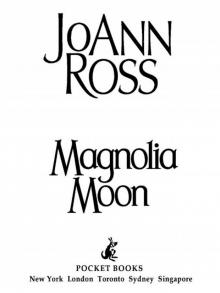 Magnolia Moon
Magnolia Moon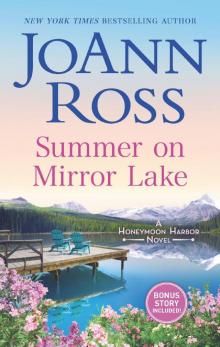 Summer on Mirror Lake
Summer on Mirror Lake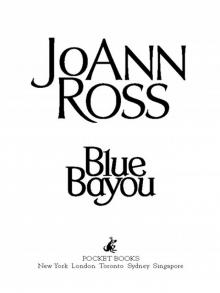 Blue Bayou
Blue Bayou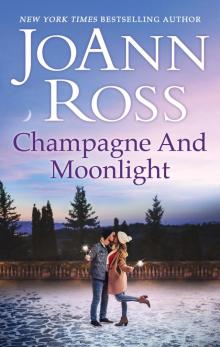 Champagne and Moonlight
Champagne and Moonlight No Regrets
No Regrets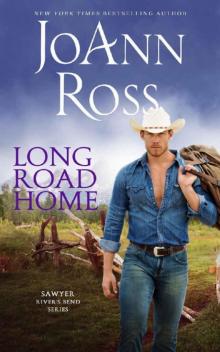 Long Road Home
Long Road Home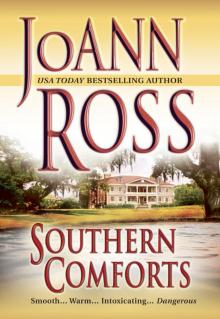 Southern Comforts
Southern Comforts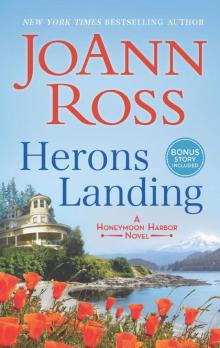 Herons Landing
Herons Landing Untamed
Untamed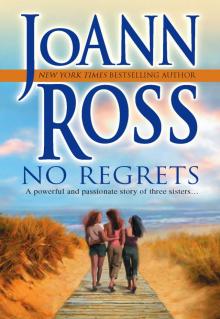 No Regrets (Mira Romance)
No Regrets (Mira Romance)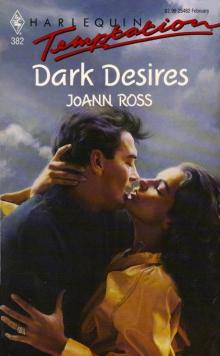 Dark Desires
Dark Desires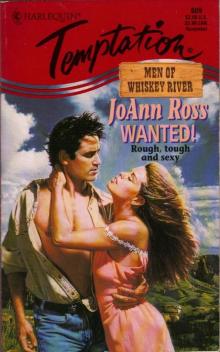 Wanted!
Wanted!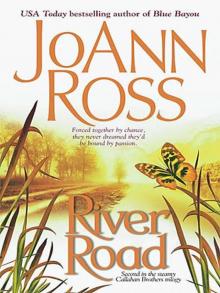 River Road
River Road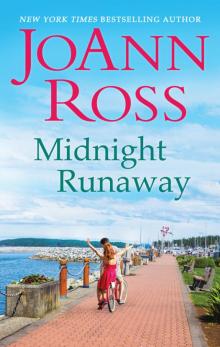 Midnight Runaway
Midnight Runaway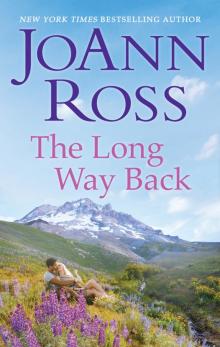 The Long Way Back
The Long Way Back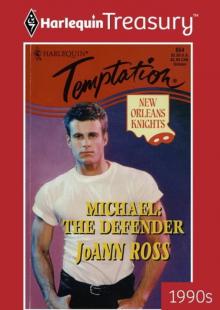 Michael: The Defender
Michael: The Defender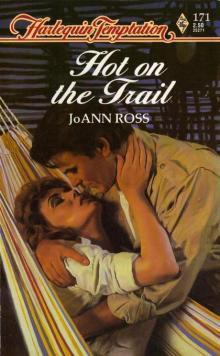 Hot on the Trail
Hot on the Trail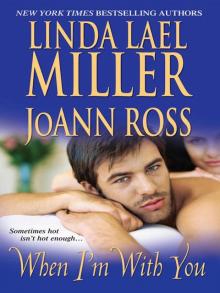 When I'm With You
When I'm With You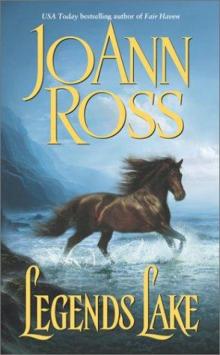 Legends Lake
Legends Lake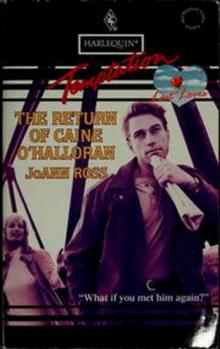 The Return of Caine O'Halloran
The Return of Caine O'Halloran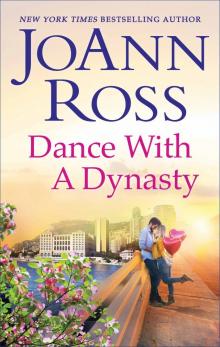 Dance with a Dynasty
Dance with a Dynasty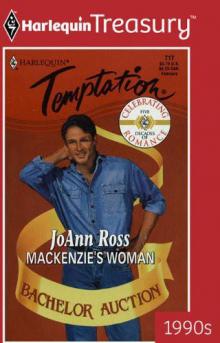 MacKenzie's Woman
MacKenzie's Woman Impulse
Impulse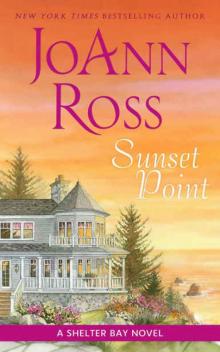 Sunset Point: A Shelter Bay Novel
Sunset Point: A Shelter Bay Novel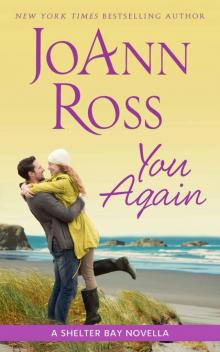 You Again: A Shelter Bay novella (Shelter Bay series Book 8)
You Again: A Shelter Bay novella (Shelter Bay series Book 8)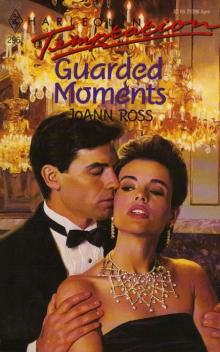 Guarded Moments
Guarded Moments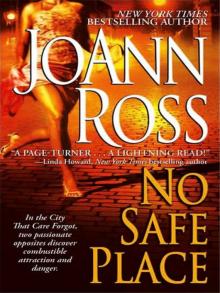 No Safe Place
No Safe Place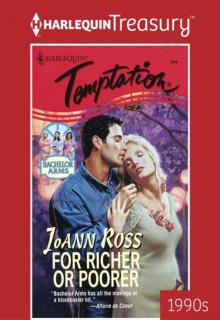 For Richer or Poorer
For Richer or Poorer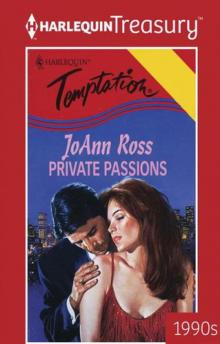 Private Passions
Private Passions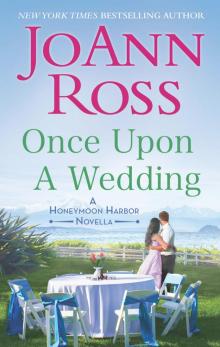 Once Upon a Wedding
Once Upon a Wedding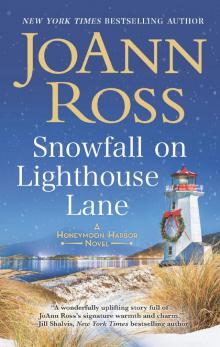 Snowfall on Lighthouse Lane
Snowfall on Lighthouse Lane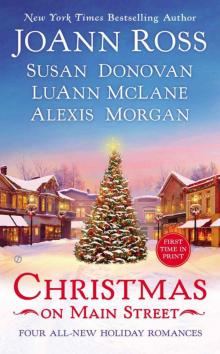 Christmas on Main Street
Christmas on Main Street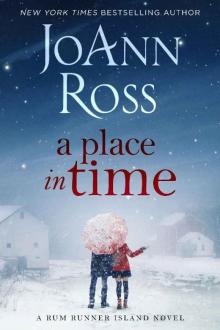 A Place in Time (Rum Runner Island Book 1)
A Place in Time (Rum Runner Island Book 1)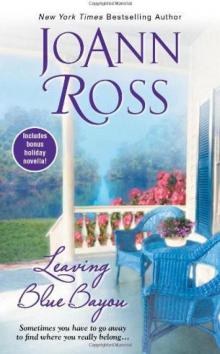 Leaving Blue Bayou
Leaving Blue Bayou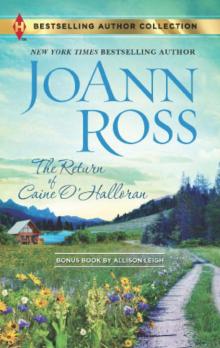 The Return of Caine O'Halloran: Hard Choices
The Return of Caine O'Halloran: Hard Choices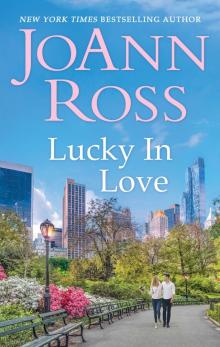 Lucky in Love
Lucky in Love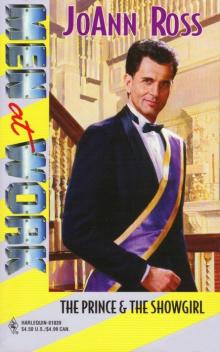 The Prince & The Showgirl
The Prince & The Showgirl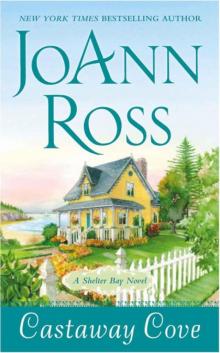 Castaway Cove
Castaway Cove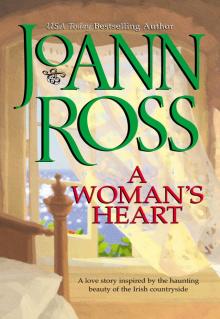 A Woman's Heart
A Woman's Heart One Summer
One Summer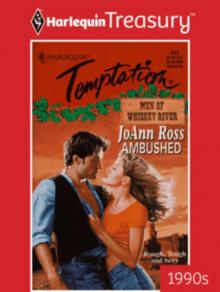 Ambushed
Ambushed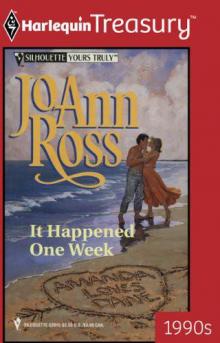 It Happened One Week
It Happened One Week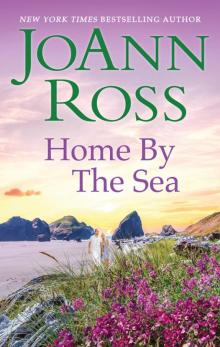 Home by the Sea
Home by the Sea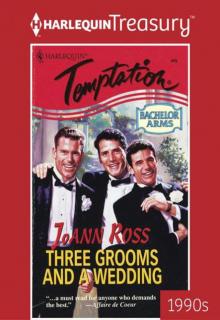 Three Grooms and a Wedding
Three Grooms and a Wedding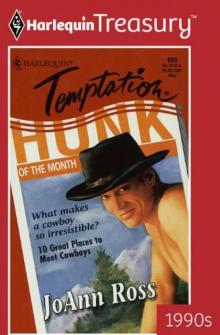 Hunk of the Month
Hunk of the Month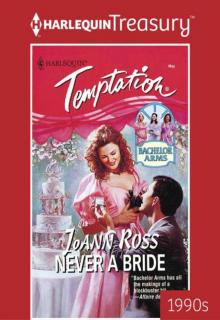 Never a Bride
Never a Bride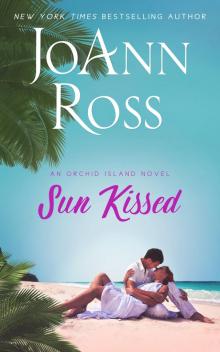 Sun Kissed
Sun Kissed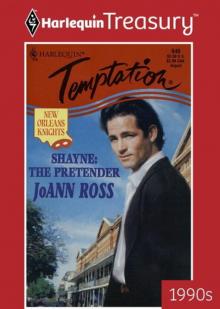 Shayne: The Pretender
Shayne: The Pretender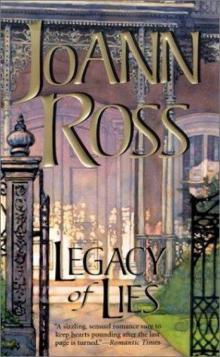 Legacy of Lies
Legacy of Lies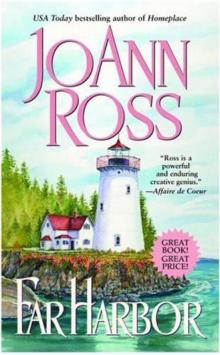 Far Harbor
Far Harbor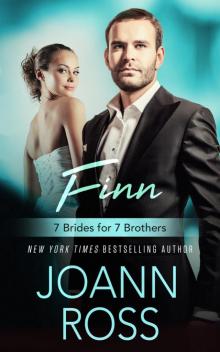 Finn
Finn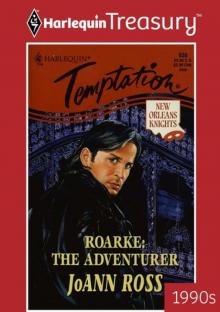 Roarke: The Adventurer
Roarke: The Adventurer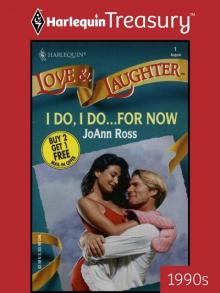 I Do, I Do...For Now (Harlequin Love and Laugher)
I Do, I Do...For Now (Harlequin Love and Laugher)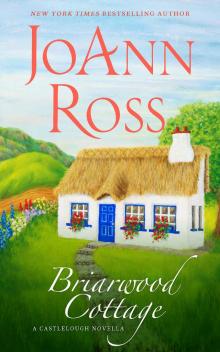 Briarwood Cottage
Briarwood Cottage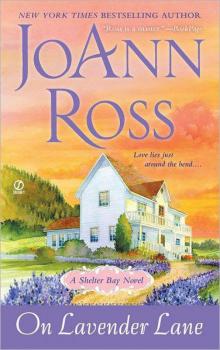 On Lavender Lane
On Lavender Lane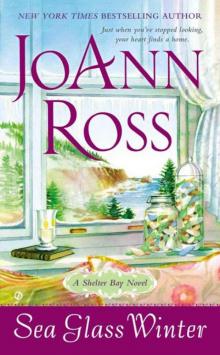 Sea Glass Winter
Sea Glass Winter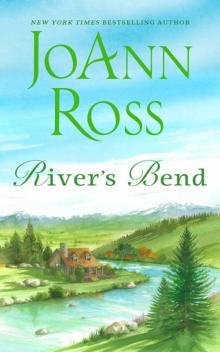 River's Bend
River's Bend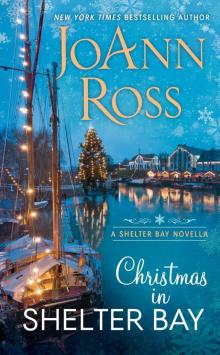 Christmas in Shelter Bay
Christmas in Shelter Bay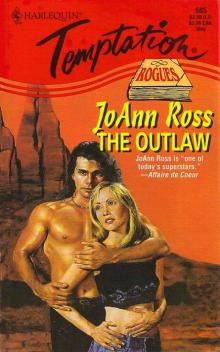 The Outlaw
The Outlaw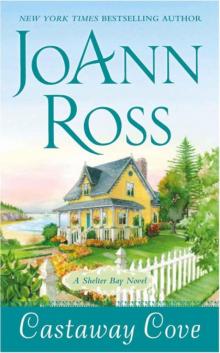 Castaway Cove (2013)
Castaway Cove (2013)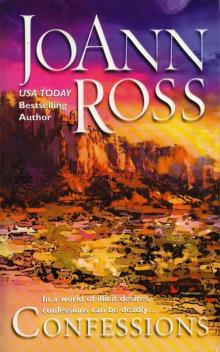 Confessions
Confessions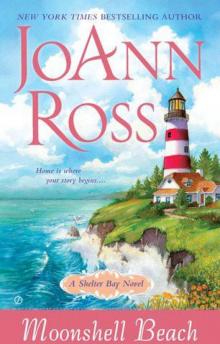 Moonshell Beach: A Shelter Bay Novel
Moonshell Beach: A Shelter Bay Novel